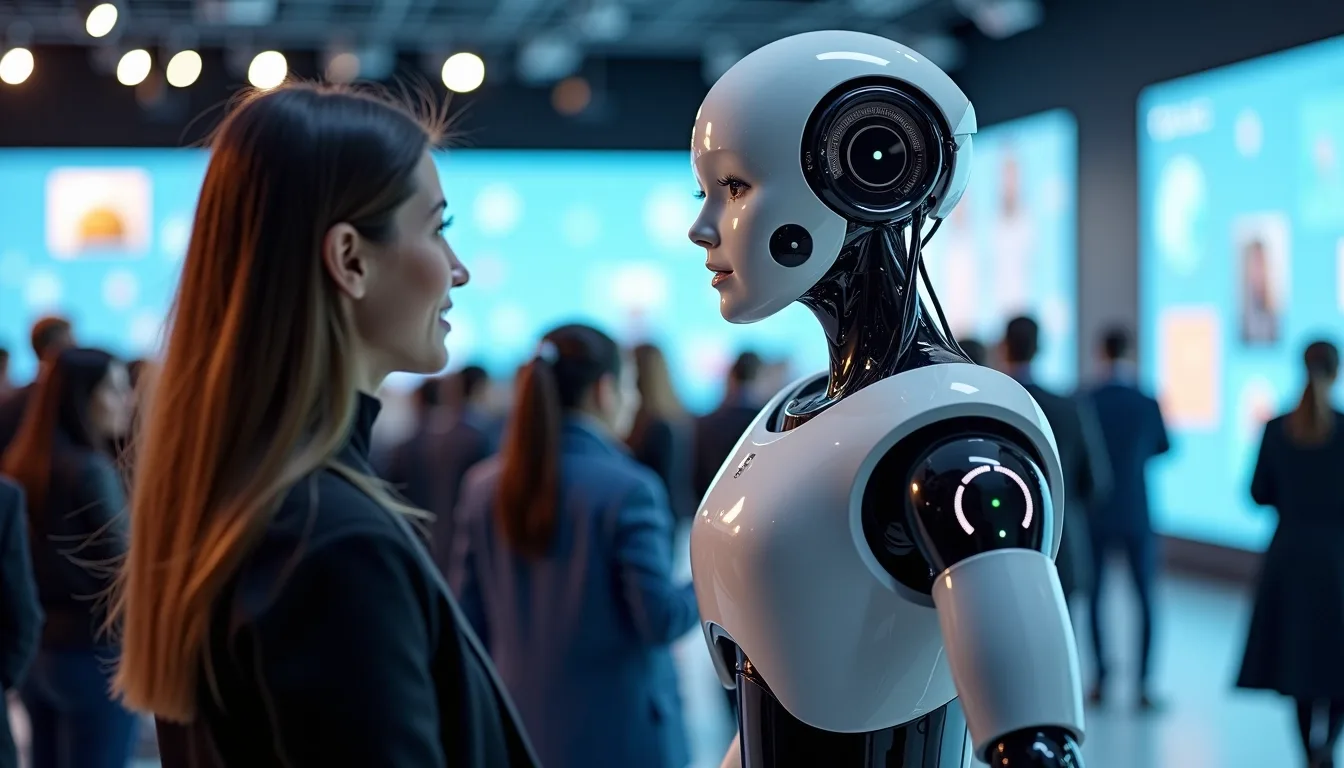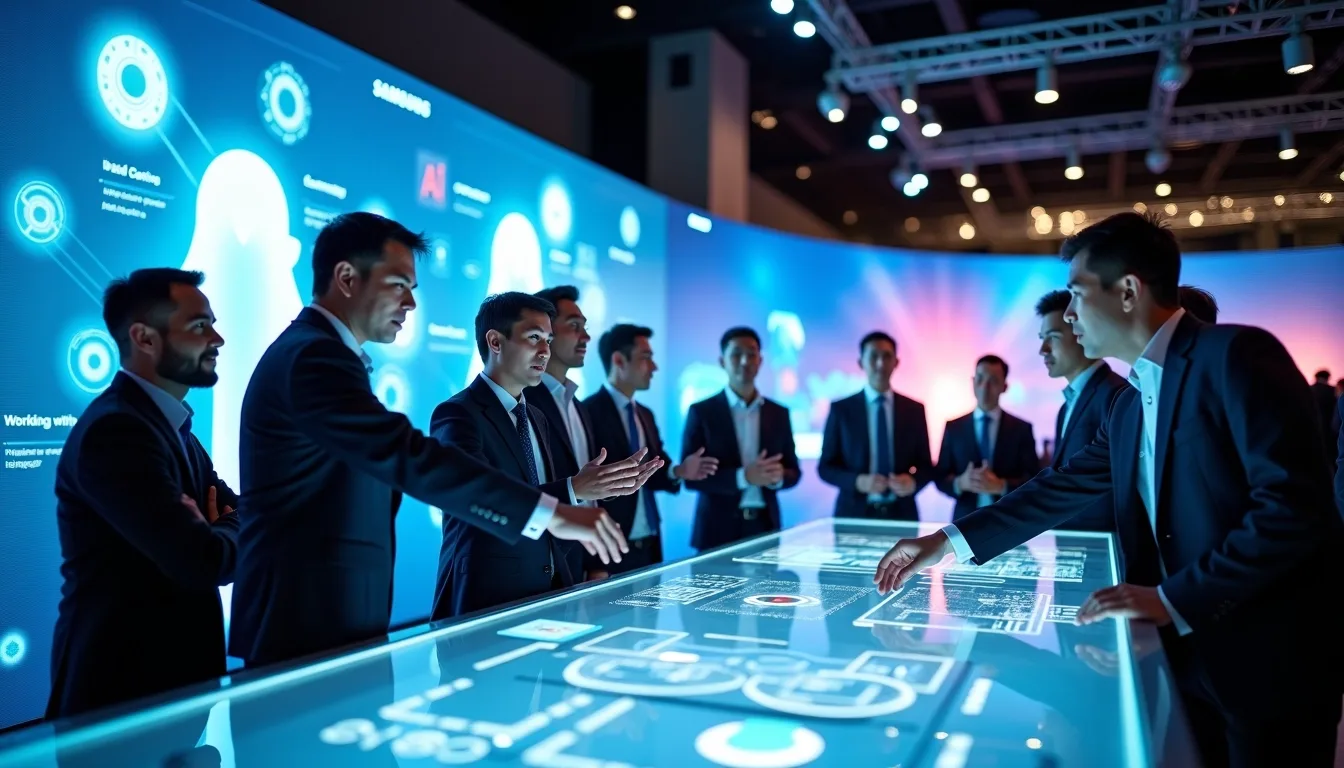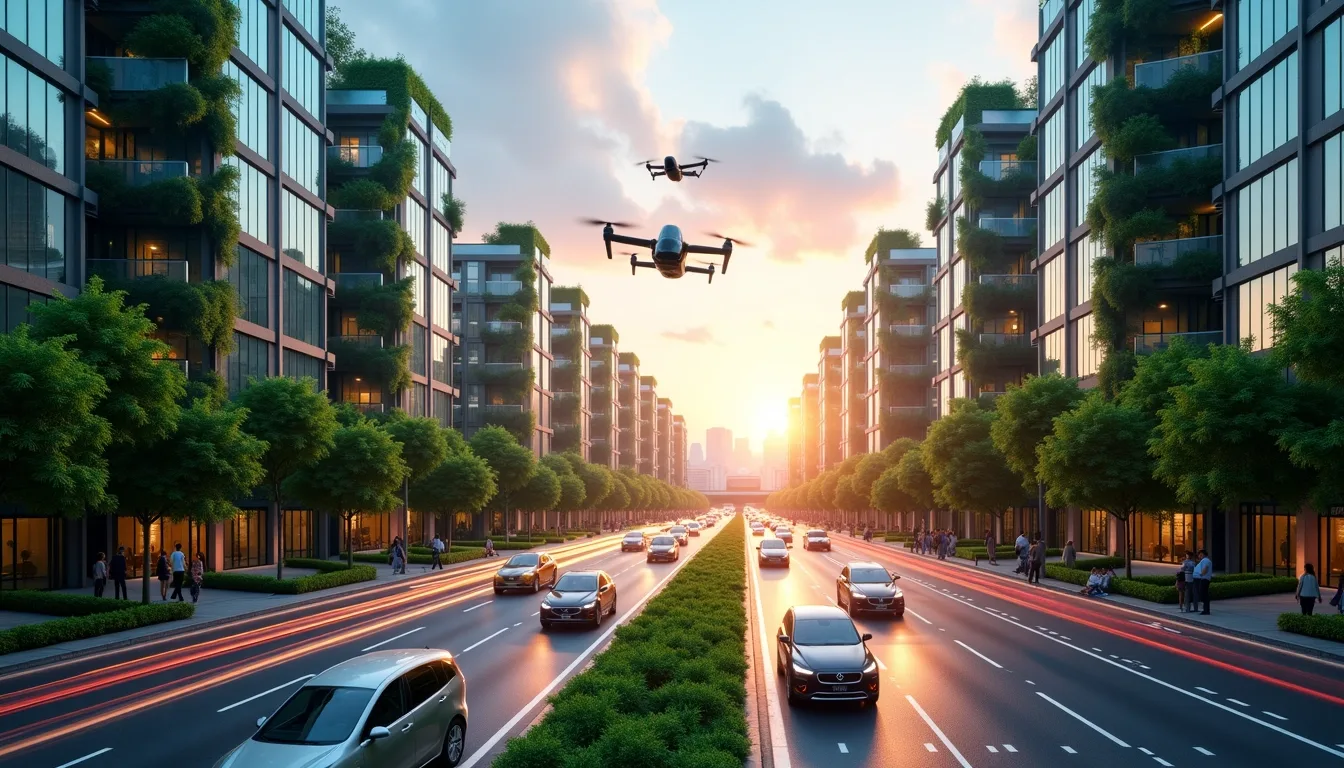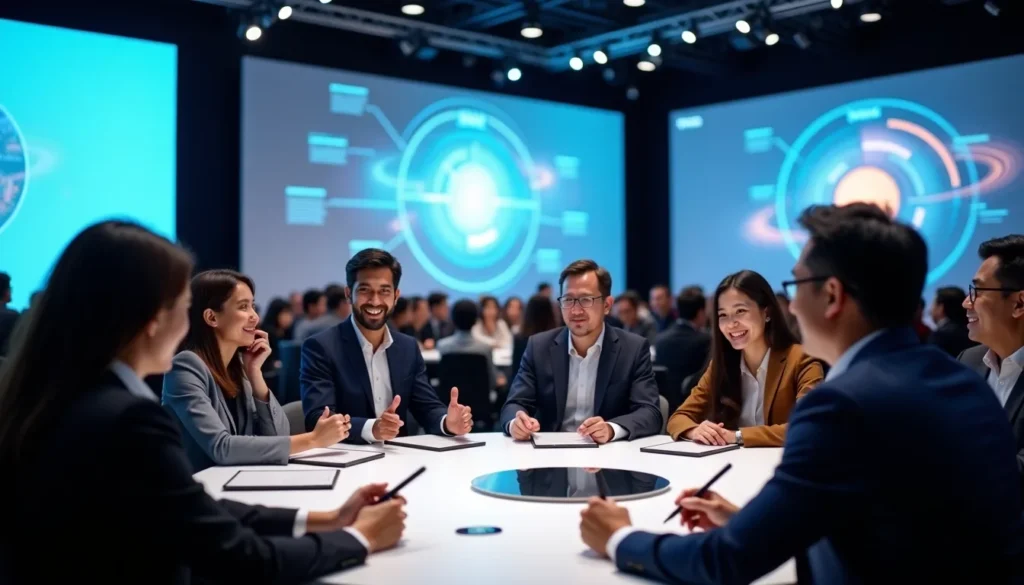Samsung AI Forum 2025: Pioneering Human-Centric Innovation in Artificial Intelligence
The Samsung AI Forum 2025 marked a significant milestone in the evolution of artificial intelligence, emphasizing a responsible, human-centric approach that puts societal benefit at the forefront. This year’s forum assembled a diverse global audience of industry leaders, pioneering researchers, policymakers, and startups, fostering a rich exchange of ideas and innovations about the future of AI research trends. Samsung reaffirmed its steadfast commitment to developing AI technologies that seamlessly integrate into daily life, fostering trust, transparency, and empathy at every touchpoint.
The forum’s core focus was on building AI systems capable of understanding, adapting to, and supporting human emotions and needs—fundamental aspects of human-centric AI. Samsung’s long-standing vision is for AI to serve society meaningfully, contributing to smarter healthcare, inclusive education, efficient transportation, and sustainable environmental solutions. The event provided a comprehensive platform showcasing emerging trends, groundbreaking hardware, and responsible AI frameworks—all aimed at shaping a future where AI is aligned with core human values.
Throughout the discussions, a shared theme emerged: the necessity for AI systems to be ethical, inclusive, and explainable. As AI becomes part of critical sectors like healthcare diagnostics, autonomous vehicles, and personalized education, the importance of trustworthy AI systems that operate transparently and fairly was underscored. Samsung’s leadership in AI research trends was evident, highlighting ongoing efforts to embed ethics into every layer of AI development, ensuring the technology benefits society while safeguarding individual rights.

The Core Philosophy: Human-Centric AI at Samsung AI Forum 2025
At the heart of the Samsung AI Forum 2025 was the guiding philosophy that artificial intelligence must place the human experience at its core. Samsung presented a visionary approach where AI is not only designed to be powerful but must also be inherently trustworthy, deeply empathetic, and thoroughly aligned with fundamental societal values. During the keynote speeches, it was emphasized that future AI systems should be intentionally built to support and enhance human well-being, function with complete transparency, and actively address pressing ethical issues such as algorithmic bias and personal privacy protection.
This human-centric philosophy is closely aligned with Korea’s broader national AI strategy, which promotes AI as a vital tool for social good and the empowerment of individuals across society. One of the standout themes of the forum was the remarkable progress made in multi-modal AI—technology that integrates multiple forms of input such as speech, facial recognition, gestures, and contextual awareness to enable AI systems to interact in a more comprehensive and human-like manner. This transition reflects a significant evolution away from automation merely for mechanical efficiency to AI systems that truly understand users on a profound level, providing highly personalized, emotionally intelligent, and socially responsible assistance.
Samsung’s initiatives in creating emotionally aware AI assistants and advanced social robotics showcased this new direction perfectly, demonstrating how contemporary AI research trends are rapidly advancing toward systems capable of genuinely relating to human emotions and social cues. These technologies aim to bridge the gap between machine and human interaction, enabling AI to become trusted companions and collaborators in everyday life rather than cold, impersonal tools.
Moreover, the forum underscored the critical importance of designing AI with inclusivity in mind—highlighting that effective AI must incorporate a wide range of cultural, linguistic, and social contexts to ensure fairness and accessibility for users around the globe. Samsung’s commitment to this inclusive approach positions AI technology as a unifying force, one that has the potential to strengthen social cohesion, reduce inequalities, and foster a future where digital technology is both a trusted and integral part of daily living for diverse populations.
Central to achieving this vision is the ongoing development of explain ability tools designed to make AI decision-making more transparent and understandable to users. Such tools are essential to building trust, ensuring users feel confident in AI systems’ actions, and improving acceptance of AI technologies. By empowering users with clear insights into AI processes, Samsung is helping lay the foundation for a future where AI is not only smart but also responsible and benevolent, comprehensively supportive of human values and societal needs.

Unveiling Technological Innovations: Advancements Pushing Boundaries
The Samsung AI Forum 2025 was a showcase for breakthrough technological innovations that are poised to define the future landscape of AI research trends. A major highlight from the event was the introduction of Neural-Next, an advanced AI processor architecture designed specifically to boost inference speed dramatically while also improving energy efficiency for real-time, on-device AI applications. This innovation enables smart devices to handle data processing locally — known as edge AI — which reduces reliance on cloud services. The result is enhanced user privacy protection, lower latency, and faster response times, all crucial for next-generation intelligent devices and applications.
Samsung also demonstrated significant progress in multi-modal AI, a cutting-edge technology that fuses visual, auditory, and sensor data to deliver richer and more accurate contextual awareness. For instance, a smart home system enhanced with multi-modal AI can analyze a combination of voice tones, facial expressions, and environmental conditions to detect signs of user stress or fatigue. It then responds adaptively—providing comfort, assistance, or personalized adjustments—illustrating how AI systems are evolving towards emotional responsiveness. These advancements reflect broader AI research trends where technology supports mental health and improves social well-being through intelligent interactions.
On the hardware front, Samsung unveiled its latest AI-powered semiconductor chips optimized for low power consumption without sacrificing high processing efficiency. These energy-efficient chips are foundational to powering intelligent devices that are not only more capable but also environmentally sustainable. The integration of AI hardware innovations with smart software solutions marks a strategic shift toward green AI initiatives—where technological progress aligns with global efforts to reduce carbon footprints and promote ecological responsibility. These efforts ensure that AI development progresses responsibly, minimizing environmental impact.
Finally, the forum highlighted advances in generative AI, showcasing models capable of producing highly realistic images, videos, music, and even immersive virtual environments. These tools dramatically empower content creators, designers, and artists, enabling swift prototyping and creative exploration across industries. Samsung’s comprehensive display of these innovations encapsulates the dynamic direction of AI research trends today, reflecting a perfect blend of increased AI capabilities, user-centric designs, and sustainable development principles that will shape the future of technology and society for years to come.

Building Trust Through Ethical Frameworks in AI Development
At the heart of the Samsung AI Forum 2025 was the foundational philosophy that artificial intelligence must prioritize and elevate the human experience above everything else. Samsung articulated a broad vision where AI systems are designed not only to be immensely powerful but also to be inherently trustworthy, deeply empathetic, and aligned with essential societal values. Throughout the keynote sessions, many experts emphasized that future AI technologies should actively support human well-being, operate with full transparency, and conscientiously confront ethical challenges such as bias mitigation and privacy protection.
This human-centric vision is strongly aligned with Korea’s national AI strategy, which highlights AI as a critical tool for achieving social good and empowering individuals across all layers of society. The Samsung AI Forum 2025 particularly spotlighted advances in multi-modal AI, technologies that integrate speech recognition, facial expression analysis, gesture interpretation, and contextual awareness to create AI systems that interact on a much richer and more intuitive level. This progress signals a significant shift away from seeing AI as pure automation toward developing systems capable of understanding users deeply and providing personalized, emotionally intelligent, and socially responsible support.
Samsung’s efforts in developing emotionally aware AI assistants and sophisticated social robotics serve as prime examples of this emerging direction, demonstrating how AI research trends are increasingly converging on technologies that can genuinely relate to and engage with humans on emotional and social levels. These developments bridge the gap between cold computational systems and warm, empathetic interaction, enhancing the ways AI can contribute positively to people’s daily lives.
Additionally, the forum placed strong emphasis on the necessity of inclusive AI design. Samsung highlighted the importance of accounting for diverse cultural contexts, languages, and social realities to ensure AI solutions are accessible, fair, and effective globally. This inclusive approach positions AI not merely as an advanced technology, but as a force for social cohesion, capable of reducing inequalities and fostering a future where technology is a trusted and integral part of everyday life for everyone, everywhere.
Central to realizing this vision is the development of powerful explainability tools that make AI decisions transparent and understandable. These tools help users, developers, and regulators alike to grasp how AI systems operate, foster trust, and support wide acceptance of AI technologies. By prioritizing explainability, Samsung is building the foundation for AI systems that are not only intelligent and responsible but also aligned with human dignity and societal values in meaningful and lasting ways.

Pioneering AI Research Trends : The Road Ahead
The Samsung AI Forum 2025 offered a comprehensive and insightful outlook on emerging AI research trends that are set to shape the technology landscape over the next decade. The forum underscored how interdisciplinary collaborations are becoming increasingly important as artificial intelligence increasingly converges with cutting-edge fields such as neuroscience, quantum computing, and material science. These integrations are expected to produce advanced AI systems capable of high-level reasoning, deep learning, and dynamic adaptation, functioning more closely to how humans think and respond in complex environments.
One particularly promising area highlighted at the Samsung AI Forum 2025 was neural-symbolic reasoning, an innovative approach that merges deep learning’s powerful pattern recognition capabilities with the precise and explicit reasoning processes typical of symbolic AI. This hybrid methodology results in AI systems that are not only highly explainable but also remarkably flexible in tackling complex challenges. This breakthrough represents a significant advancement toward fully realizing the concept of human-centric AI, capable of meeting and exceeding the high standards required for transparency, fairness, and social trust in modern AI deployments.
Another critical focus area discussed during the forum was federated learning, a scalable technique that enables privacy-preserving AI training across millions of decentralized devices worldwide. This approach ensures that sensitive user data remains secure and local, thus addressing major privacy concerns while supporting democratized AI innovation. In parallel, advancements in generative AI were showcased as transformative tools driving creativity across industries, empowering users to generate custom content, rapidly design prototypes, and build immersive virtual environments with unprecedented ease.
Sustainability and ecological impact were also key themes at the Samsung AI Forum 2025, with the emergence of green AI initiatives designed to mitigate environmental footprints by focusing on energy-efficient algorithms and hardware optimizations. Samsung strongly emphasized its leadership role in promoting these initiatives, reinforcing the imperative that all evolving AI research trends must incorporate ecological consciousness to ensure sustainable growth without sacrificing performance or innovation.
Finally, the forum focused on the essential role of AI education and talent nurturing as foundational for ongoing progress. Samsung announced strategic partnerships with universities and research laboratories worldwide to develop a diverse and highly skilled pipeline of AI researchers and practitioners who embrace ethical responsibility. Together, these multifaceted trends paint a clear picture of a future where AI technologies not only become smarter and more capable but also more responsible, ethical, and fundamentally aligned with human values and societal advancement.

The Future of AI: Shaping Society and Industry
The future envisioned at samsung ai forum 2025 is one where AI profoundly and positively impacts society and industry. AI systems will increasingly support mental health, eldercare, and inclusive education, foster social equality, and promote environmental sustainability. These systems will be built upon the pillars of trust, explainability, and ethical design, ensuring that AI benefits everyone equally.
In industry, smart manufacturing, personalized medicine, and autonomous mobility will be transformed by AI solutions that are more adaptive and responsible. For example, AI-driven healthcare diagnostics will enable earlier detection of diseases with explainable results, ensuring patients and doctors can make informed decisions confidently. Autonomous transportation systems will become safer and more reliable through explainable and trustworthy AI systems, reducing accidents and traffic congestion.
Moreover, AI-powered smart infrastructure will create cities that are more energy-efficient, cleaner, and more connected. The integration of intelligent systems in transportation, energy grids, and public safety will contribute significantly to sustainable urban development. These innovations align with AI research trends that prioritize environmental responsibility, societal inclusion, and resilience.
The future also involves continuous societal dialogue, bringing together policymakers, technologists, civil society, and other stakeholders to collaboratively craft comprehensive regulatory frameworks that both support innovation and rigorously safeguard fundamental human rights. This ongoing engagement is crucial to ensure that as AI technology evolves rapidly, regulations keep pace to address emerging ethical, social, and legal challenges. Samsung’s leadership in AI development positions the technology as a powerful tool for global betterment, championing the vision that human-centric AI becomes ubiquitous, trustworthy, and ethically aligned in the years ahead, ultimately benefiting people worldwide while fostering responsible innovation.

Final Words: The Path to Trustworthy, Human-Centric AI
The Samsung AI Forum 2025 demonstrated a committed vision: that the future of AI lies in systems that are transparent, ethical, empathetic, and aligned with human values. The event illuminated how AI research trends are moving toward building systems that not only perform complex tasks but also foster trust, inclusivity, and social good. Samsung’s leadership in integrating AI into everyday life responsibly underscores that human-centric AI is not just an aspiration but an attainable goal.
Moving forward, the industry must continue to prioritize advancements that are comprehensible and ethically sound, embedding principles of fairness and privacy into AI solutions. The innovations introduced at this forum show that combining technical excellence with social responsibility can accelerate AI adoption and acceptance globally. As AI becomes more embedded in daily routines—supporting health, education, work, and social interaction—it is imperative that development remains rooted in human well-being.
Samsung’s commitment to evolving trustworthy AI with ongoing research and collaborative efforts will define the trajectory of AI’s societal impact. Responsible AI development is a shared responsibility among developers, regulators, and society, and it is crucial to foster an environment where human-centric innovation thrives. The kind of future this forum envisions is one where technology amplifies human potential and paves the way for a more inclusive, sustainable world.
For more in-depth coverage on AI breakthroughs and future tech, follow Ai Tech Unboxed for the latest updates and insights.
FAQs
Q1. What is the key theme of Samsung AI Forum 2025?
The central theme is human-centric AI, focusing on building trustworthy, ethical, and emotionally intelligent systems that serve societal needs responsibly.
Q2. How is Samsung promoting responsible AI development?
Through explainable AI frameworks, privacy-preserving techniques like federated learning, bias mitigation, and fostering international collaboration on AI ethics.
Q3. What innovations were showcased in hardware at the forum?
Highlights include Neural-Next AI chips, energy-efficient semiconductor designs, and AI-enabled sensors supporting smarter, greener devices.
Q4. What are the future AI research trends discussed?
Key trends include neural-symbolic reasoning, federated learning, generative AI, environmental sustainability, and multidisciplinary research for smarter AI.
Q5. How will AI impact daily life according to the forum?
AI will support personalized healthcare, eldercare, education, and sustainable urban infrastructure, enhancing quality of life broadly and inclusively.



